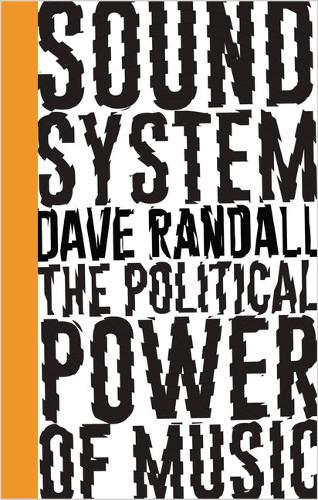 Music resonates in all corners of our lives. ‘It walks us down the aisle and marches us off to war.’ Dave Randall manages to sing music’s political praises while keeping his feet on the ground, siphoning the best of what has been thought about music into a book that is straightforward, intimate and downright delightful.
Music resonates in all corners of our lives. ‘It walks us down the aisle and marches us off to war.’ Dave Randall manages to sing music’s political praises while keeping his feet on the ground, siphoning the best of what has been thought about music into a book that is straightforward, intimate and downright delightful.
As a performer himself, Randall is no armchair theorist. We are with him as he plays with the band Faithless; and later pogo past him in a rave. Here in the club, we share his contemplation, alone yet together with strangers on the dance floor, pondering how music binds us and is a potential way to aid both solidarity and change.
As a participating observer, Randall documents live events, ones where music is the ‘centrepiece and cement of community’. His account of a gig in a stageless venue of Brixton is worth quoting in full:
‘With no physical separation between band and audience, other codes that usually separate us start to dissolve too. At big gigs, we buy tickets, pay booking fees, queue, are searched by security, herded in and sold over-priced drinks in plastic cups.… We’re separated from the band by barriers, bouncers and photographer pits and performers use every theatrical trick to emphasise how different they are from the audience – elaborate costumes, huge lighting rigs [yet here] the musicians make no pretensions to stardom.... They simply offer up their music – raw, direct… This is culture treating us as adults, as participants in a community, as trustworthy citizens – rather than cash cows to be herded around and milked dry.’
Music can also be a tool for political action. ‘If we want to erode the alienation we experience in our everyday lives, we must build trust, confidence and solidarity in our communities. We must get to know our neighbours. There are few better places for that to begin than on an impromptu dance-floor in a pub, park, street or tenement block.’
We can be participants in our own self-creation and culture. Celebrities and branding aren’t necessary to create societal bonds.
But musicians also need the courage to realise that what they are doing is political: ‘We must have no truck with those who argue that music and politics don’t mix. At best, their definition of politics is too narrow. Most likely they simply aren’t courageous enough to admit, even to themselves, that they have no desire to change the world.’


